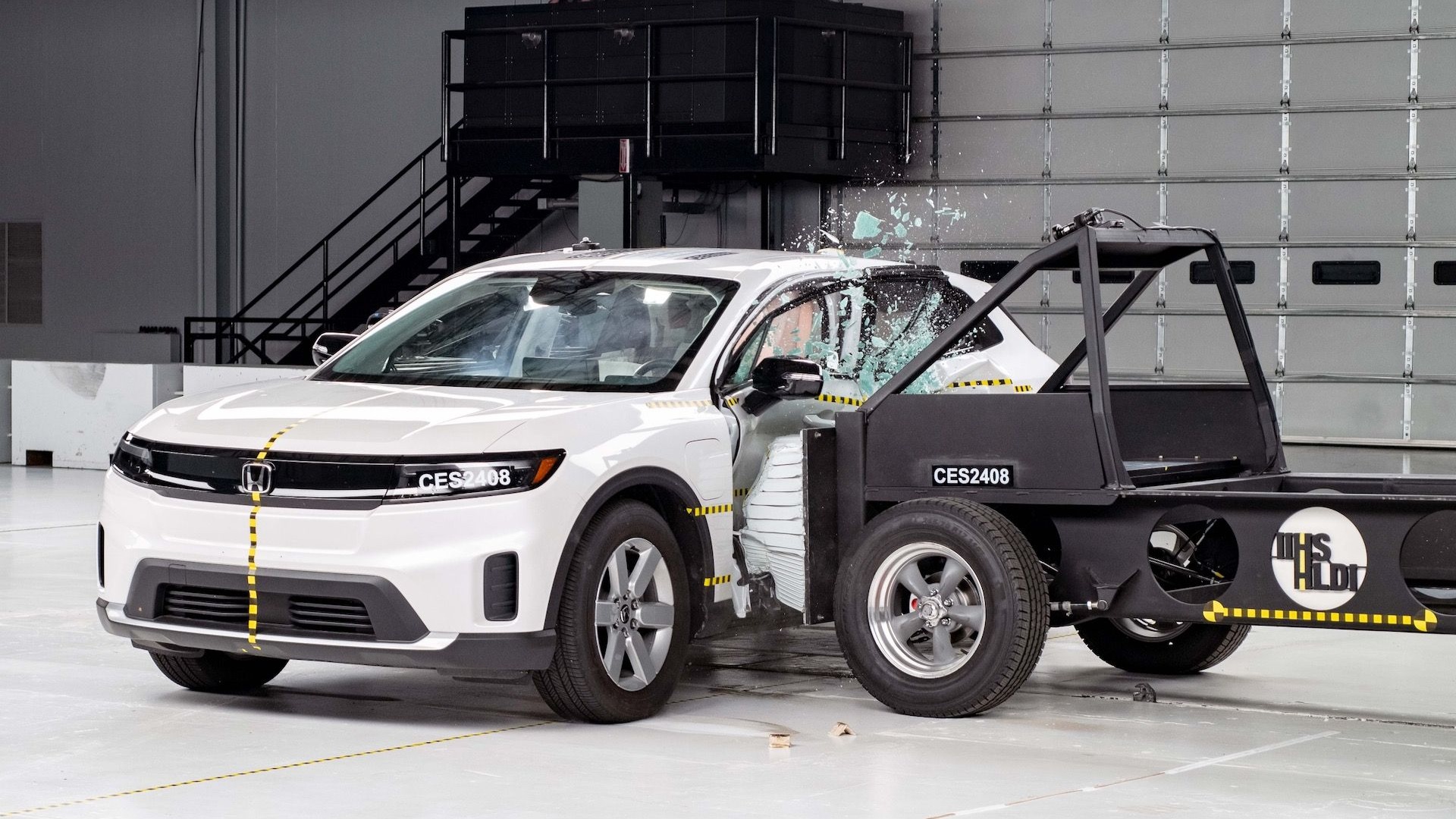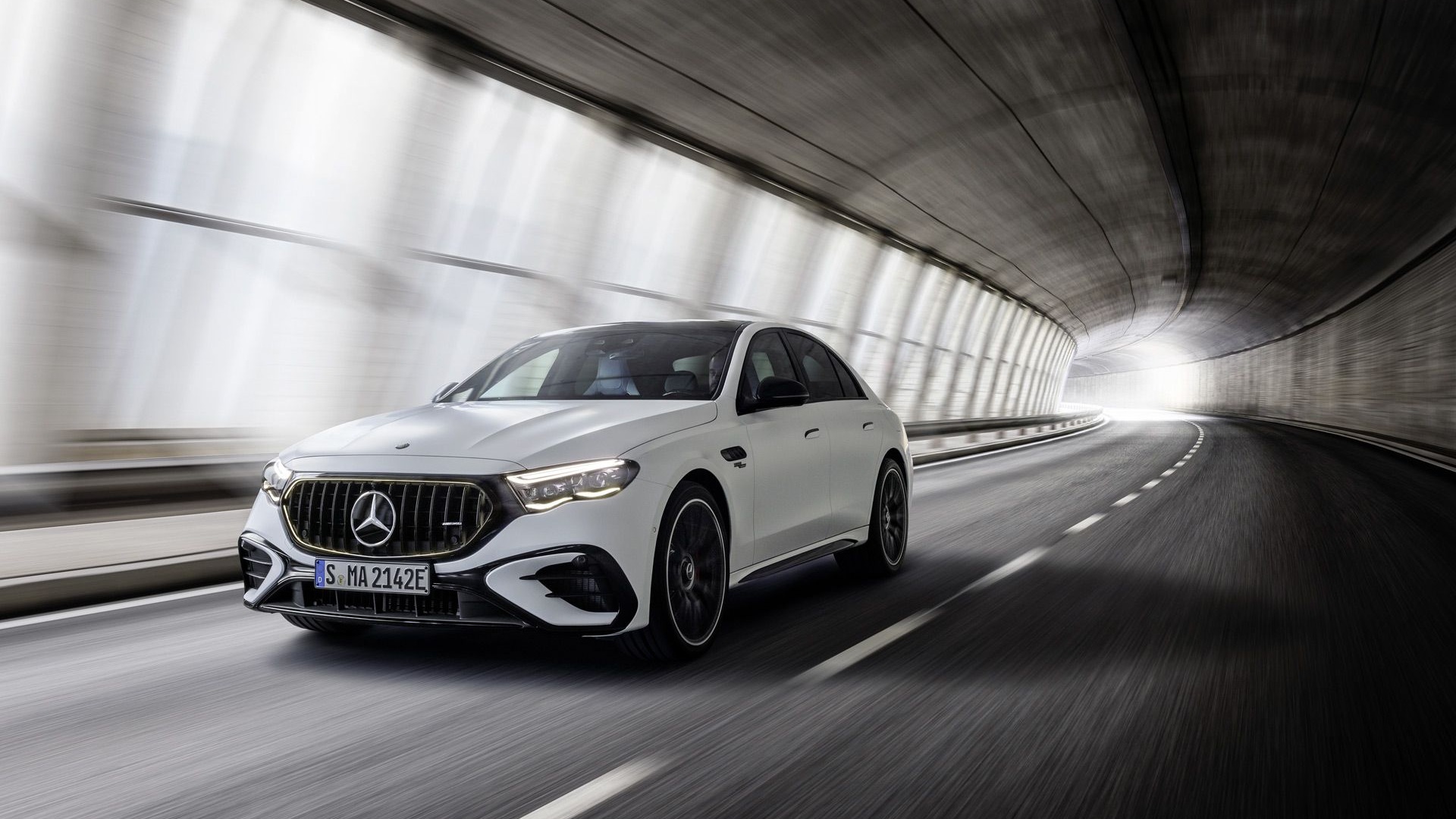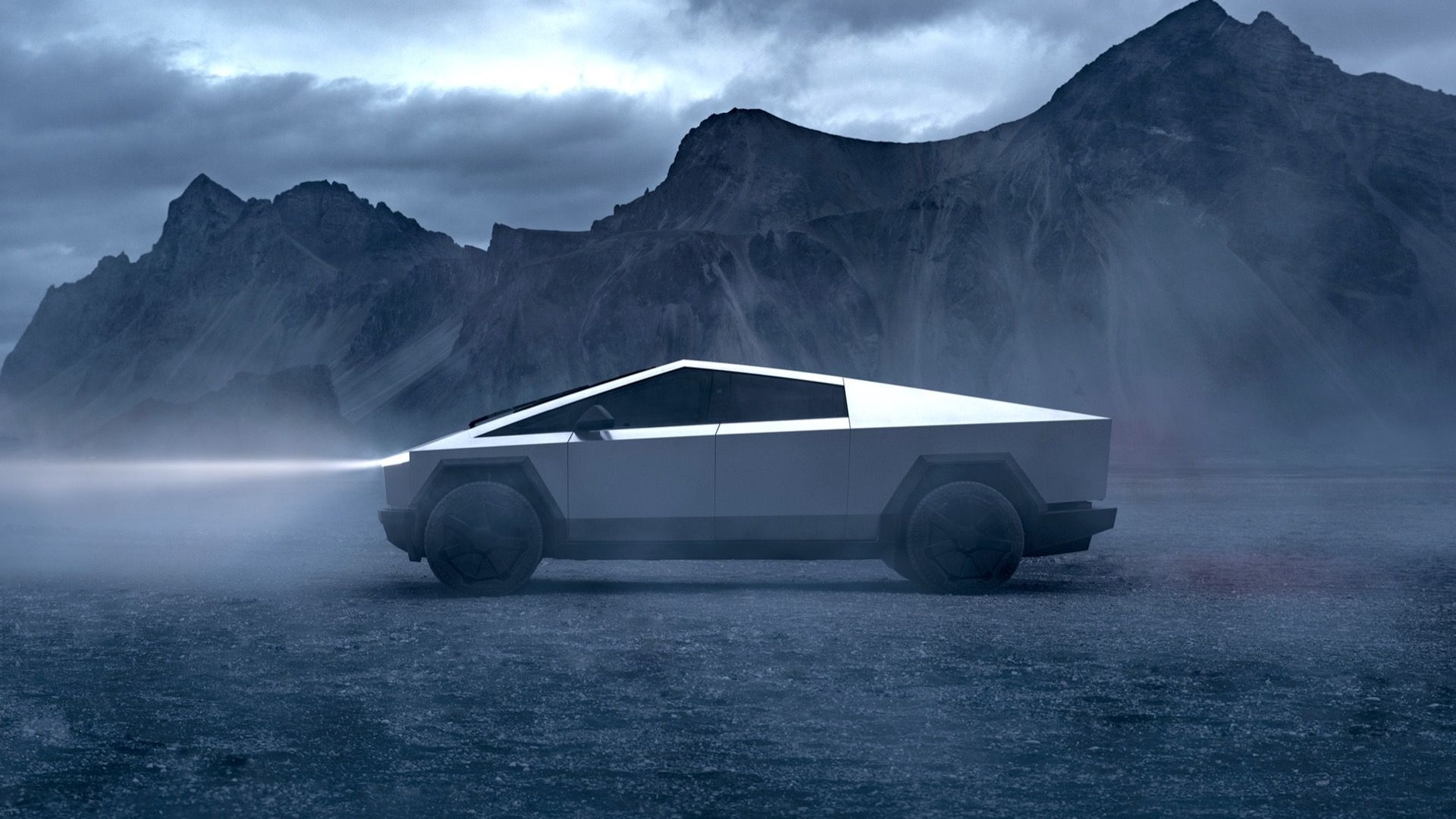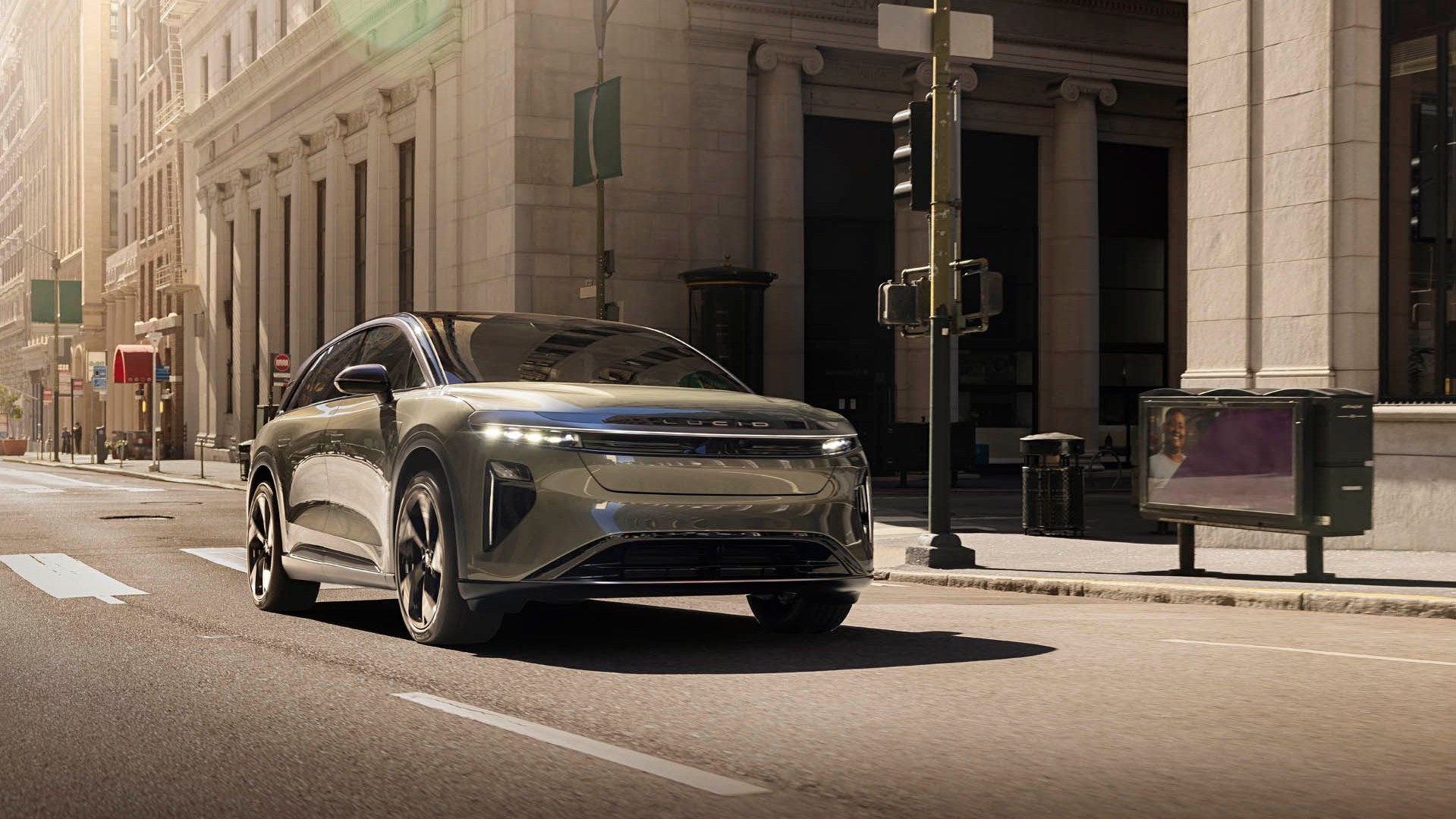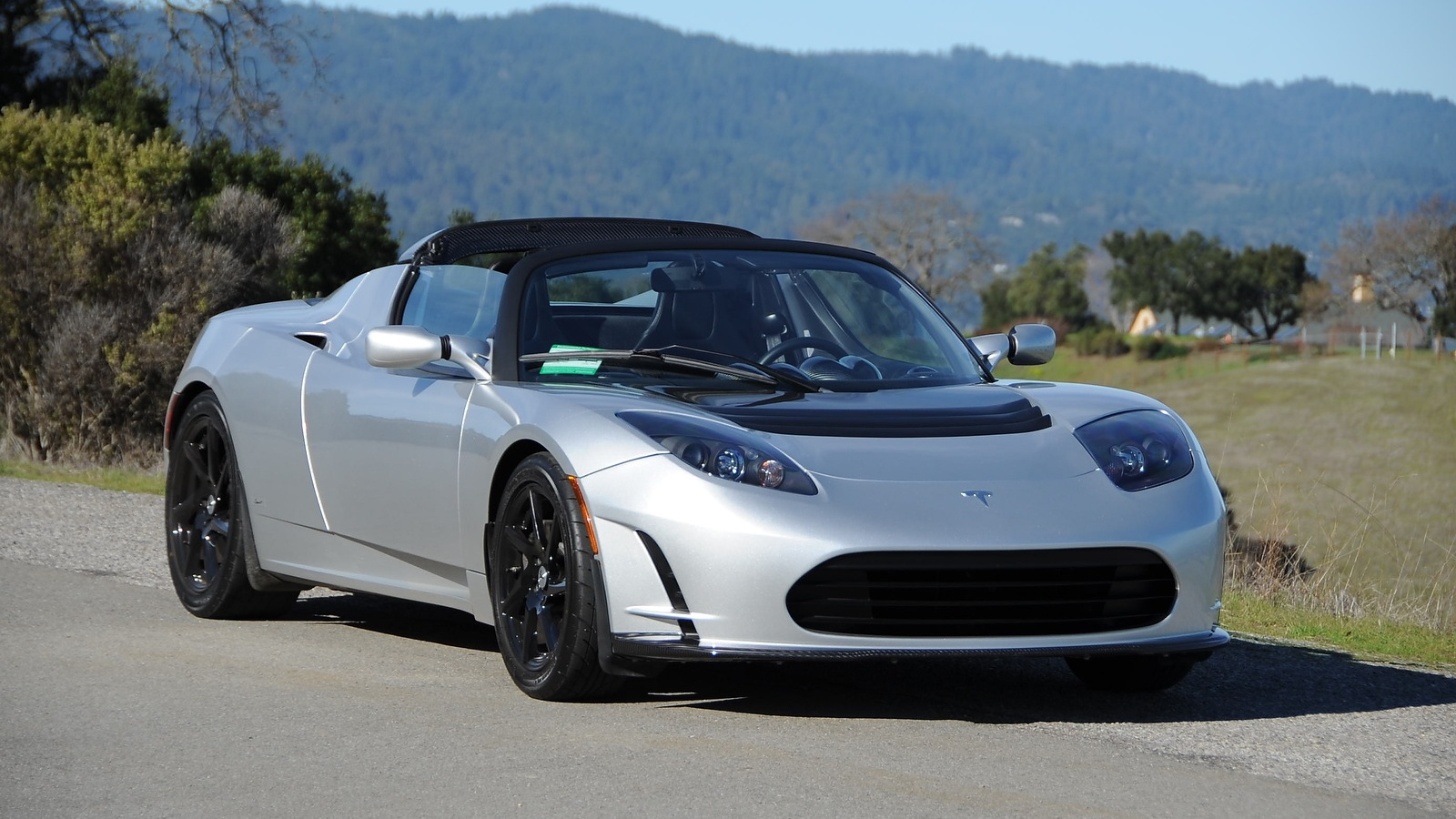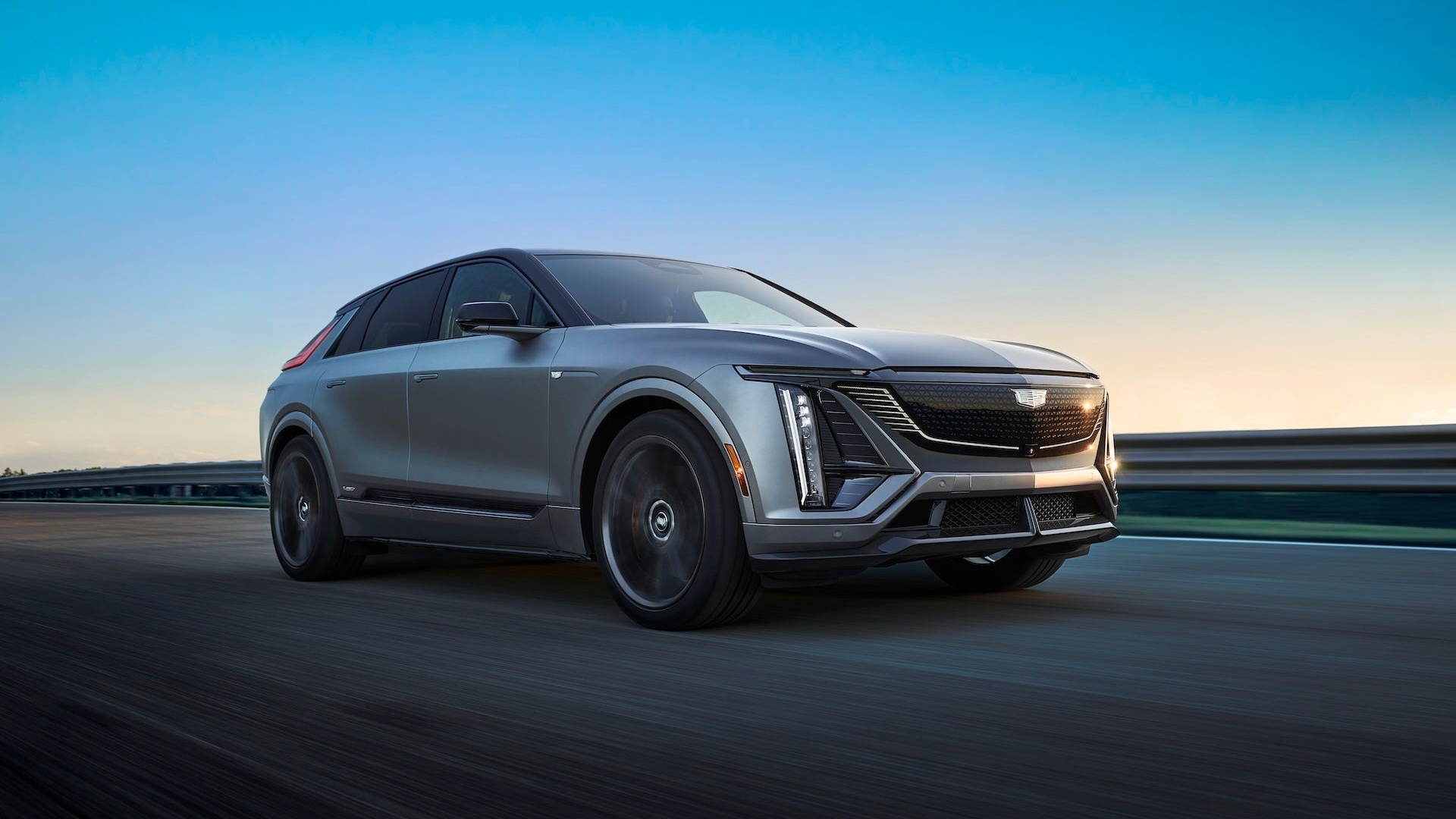It may be the one question we hear most often here at GreenCarReports.com: Why can't I buy one of those great little fuel-efficient diesels, like they have in Europe?
Take, for example, the ultra-high-mileage Econetic version of the Ford Fiesta, sold in Europe with a 1.6-liter turbodiesel that returns 63 miles per gallon on the European cycle.
Our driver, Michael Frank, got an actual 44 mpg in spirited Econetic driving. But that's still much higher than the 30 mpg city, 40 mpg highway rating for the U.S. version of the 2011 Ford Fiesta.
What carmakers say
We talk to a lot of carmakers, and we can tell you what they think. Before you start flaming us, understand: These are the reasons they give for not offering small diesels. If you want to weigh in, the comments box is below. But don't shoot the messenger, OK?
In their view, there are three main factors working against putting smaller diesel engines into passenger cars and crossovers.

ford fiesta econetic motorauthority 004

ford fiesta econetic motorauthority 002

2010 Volkswagen Golf TDI

2010 Volkswagen Golf TDI
They're too dirty
First, U.S. emissions standards, especially for particulates, are tougher than European ones. All but the smallest diesels have to be fitted with even more expensive after-treatment equipment than Europe requires.
One variants of the Mercedes-Benz BlueTEC system, for example, includes two catalytic converters and an âAdBlueâ urea-injection system to clean the nitrous oxides and particulates from the exhaust.
And that gear has to be added to an engine that's 10 to 15 percent more costly to build than a gasoline engine of the same power. Even without U.S. equipment, the Ford Fiesta Econetic costs $31,000 in Europe; the U.S. 2011 Fiesta costs $14,000 to $23,000.
Europe keeps diesel cheap
Second, Europe has taxed diesel fuel at lower rates for 30 years to encourage its use. And it's worked; 50% of new cars there have small turbodiesels. But in the U.S., diesel fuel is the same price or more expensive than gasoline.
So there's no obvious cost advantage, meaning that diesel buyers have to calculate whether a higher purchase price and more costly fuel are offset by the higher fuel economy over the projected life of the car.
And you know how people hate to do math.
Diesel fuel isn't ubiquitous
Third and finally, diesel fuel isn't available to consumers at every fuel station, as it is now in European markets.
Only roughly half of U.S. stations have diesel at all, and of those, only about half have it on the same islands as gasoline. My mum, for one, may not particularly want to hunt for a station, only to have to fill her car out back with the semis.
Think garbage truck
Other factors working against small diesels include public perceptions of diesel engines as dirty and noisy. Think: garbage truck. New ad campaigns by Audi and others are promoting the "clean diesel" concept, but it's a slow process.
And a few buyers may still have residual bad memories of the unreliable GM V-8 diesel engines of 1978-85.
Europeans think it's obvious
But executives and engineers at European makers take a different view. Off the record, they will reel off some combination of the following points:
- Diesels emit far less carbon per mile traveled (true)
- Torquey small diesels offer a much better driving experience than hybrids (debatable, but arguably true)
- The U.S. government should immediately raise taxes on gasoline to encourage diesel adoption (well, perhaps...but find us a politician to lead that fight)
- U.S. standards require diesels to be far too clean, and Americans are irrational about emissions (you decide)
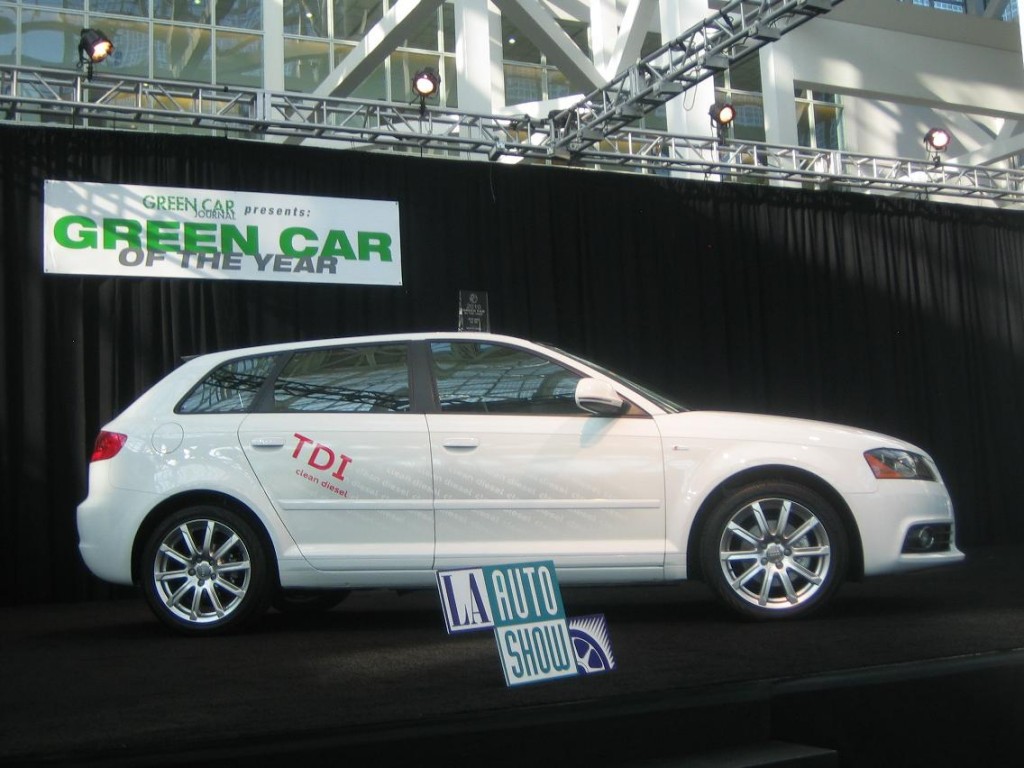
2010 Audi A3 TDI named Green Car of the Year, 2009 LA Auto Show
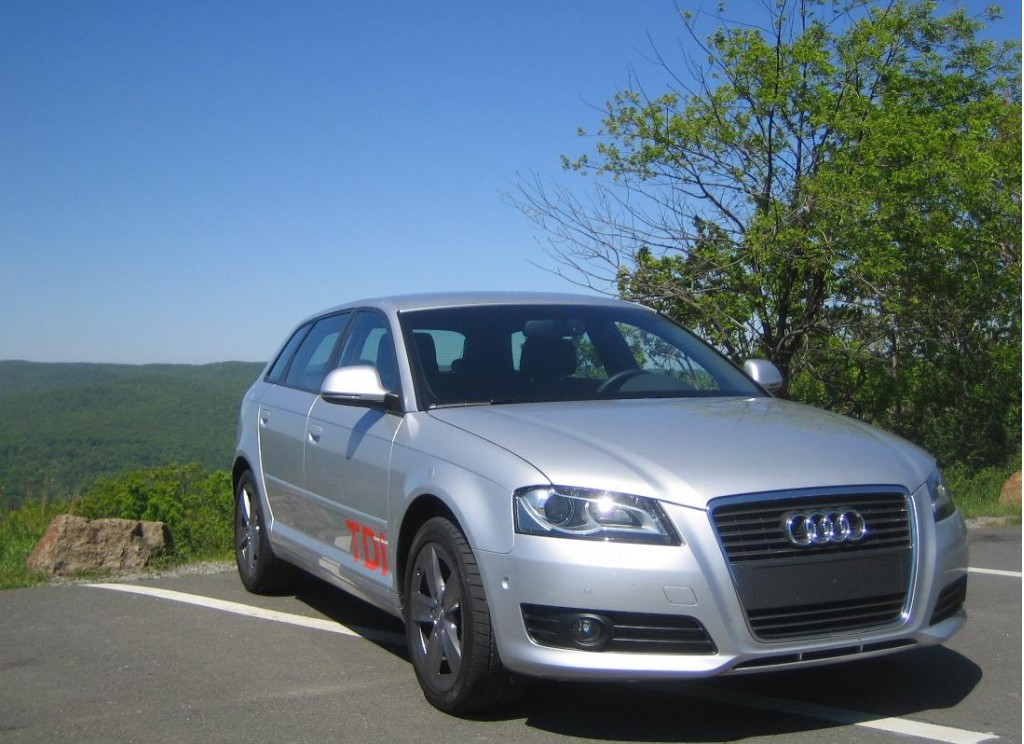
Audi A3 TDI clean diesel - European model
VW and Mercedes lead
Right now, diesels are offered in the U.S. by longtime diesel makers Volkswagen and Mercedes-Benz, plus newbies Audi and BMW. We think VW may have the big diesel winner in its new 2010 Volkswagen Golf TDI.
The Japanese makers have now pulled way back on diesel projects. Nissan, Honda, and Subaru were all working on small diesels they planned to launch in the U.S. market during the 2009 and 2010 model years, but none has current plans to offer them.
Audi optimistic
Audi is on a roll with its diesels right now. Its 2010 Audi A3 TDI won the Green Car of the Year award at last week's Los Angeles Auto Show and in November, the TDI model made up 43 percent of A3 sales--all 391 of them.
While it projected the TDI diesel model to be 15 percent of its 2010 Audi Q7 sport utility sales, Audi president Johan de Nysschen says dealers can't keep them in stock, and they now represent 46 percent of orders. Audi has sold 6,600 Q7s so far this year.
Chance come and gone?
We tend to think that diesel had its chance two years ago when gasoline prices spiked. But diesel spiked even MORE then; remember $5/gallon diesel?
So while we expect clean diesels to grow in market share, it'll be a slow, slow process.



